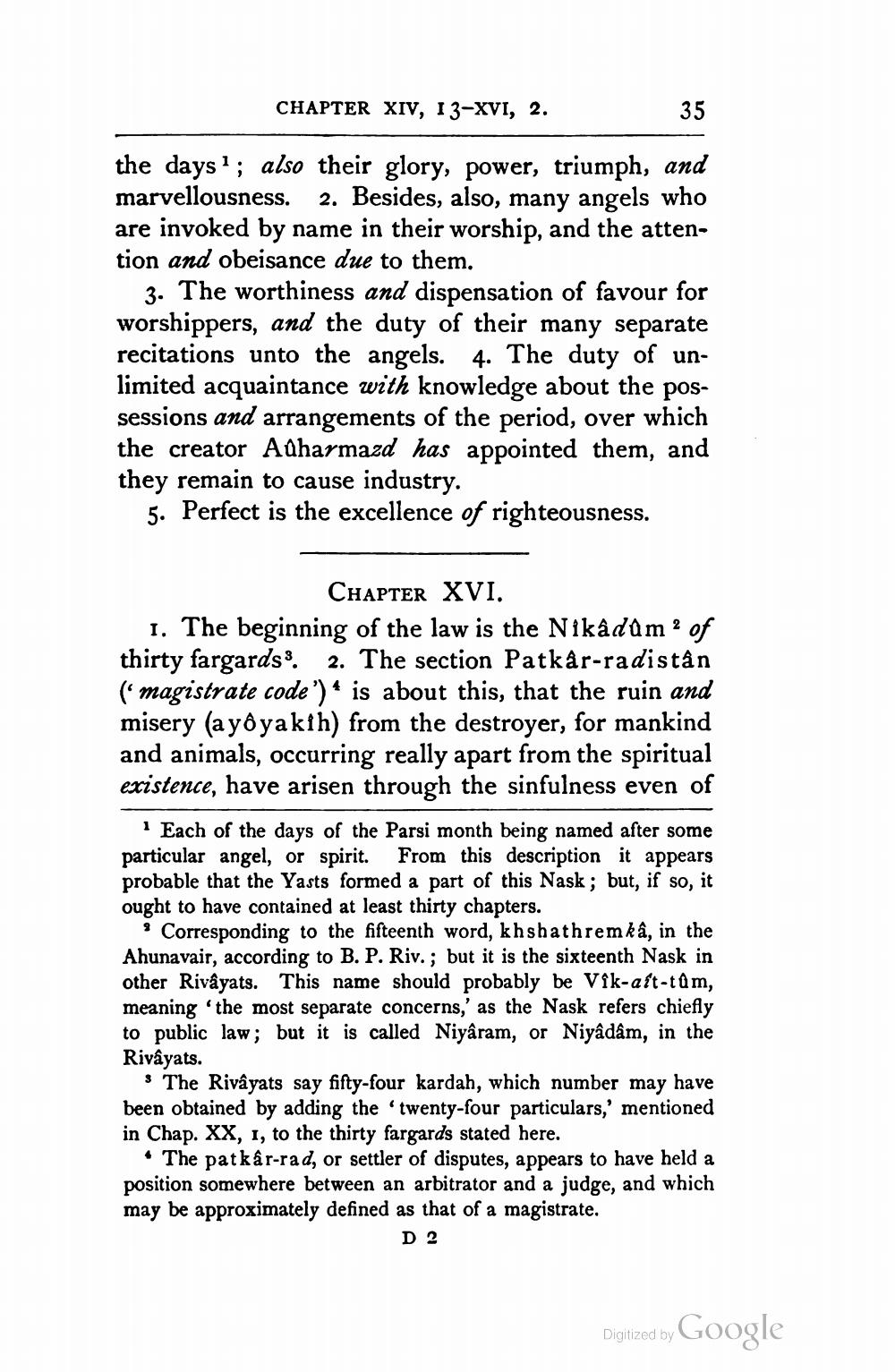________________
CHAPTER XIV, 13-XVI, 2.
35
the days ? ; also their glory, power, triumph, and marvellousness. 2. Besides, also, many angels who are invoked by name in their worship, and the attention and obeisance due to them.
3. The worthiness and dispensation of favour for worshippers, and the duty of their many separate recitations unto the angels. 4. The duty of unlimited acquaintance with knowledge about the possessions and arrangements of the period, over which the creator Adharmazd has appointed them, and they remain to cause industry.
5. Perfect is the excellence of righteousness.
CHAPTER XVI. 1. The beginning of the law is the Nikâdam of thirty fargards. 2. The section Patkâr-radistân (magistrate code') * is about this, that the ruin and misery (ayôyakih) from the destroyer, for mankind and animals, occurring really apart from the spiritual existence, have arisen through the sinfulness even of
Each of the days of the Parsi month being named after some particular angel, or spirit. From this description it appears probable that the Yasts formed a part of this Nask; but, if so, it ought to have contained at least thirty chapters.
9 Corresponding to the fifteenth word, khshathrem ka, in the Ahunavair, according to B. P. Riv.; but it is the sixteenth Nask in other Rivâyats. This name should probably be Vîk-aft-tûm, meaning the most separate concerns,' as the Nask refers chiefly to public law; but it is called Niyâram, or Niyâdam, in the Rivayats.
* The Rivâyats say fifty-four kardah, which number may have been obtained by adding the twenty-four particulars,' mentioned in Chap. XX, 1, to the thirty fargards stated here.
The patkâr-rad, or settler of disputes, appears to have held a position somewhere between an arbitrator and a judge, and which may be approximately defined as that of a magistrate.
D2
Digitized by Google




